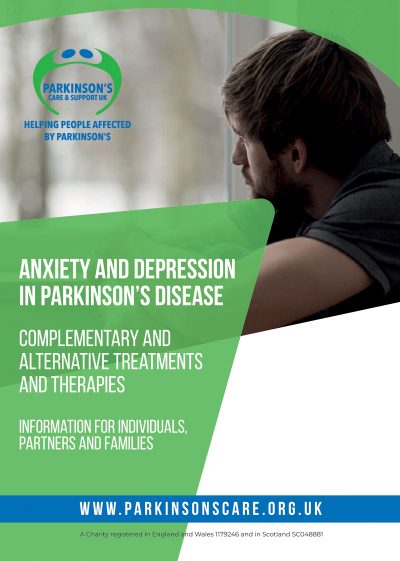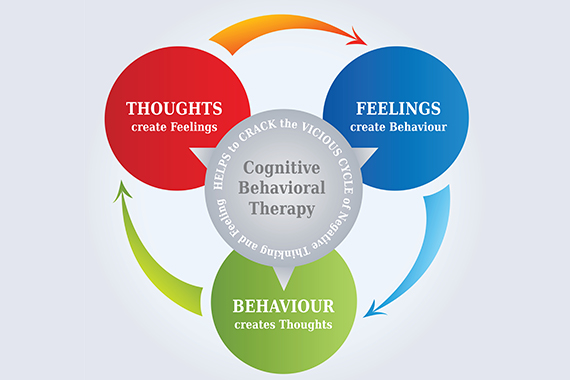Anxiety & Depression in Parkinson’s
Besides being better known for causing motor impairments, Parkinson’s disease (PD) can also cause many nonmotor symptoms, like depression and anxiety, which can cause significant loss of life quality and may not respond to regular drugs treatment. Around 50% of people diagnosed with Parkinson’s will suffer from some form of depression during their illness and up to 40% will experience an anxiety disorder.

Anxiety
Anxiety is a common non-motor symptom of Parkinson’s Disease. It is important to note that anxiety is not simply a reaction to the diagnosis of Parkinson’s, but is instead a part of the disease itself, caused by changes in the brain chemistry of the brain.
Anxiety is not tied to disease progression — it can begin before a PD diagnosis or develop much later. Additionally, while some people with PD experience anxiety on its own, many are diagnosed with anxiety along with depression. While anxiety is less well-studied than depression, it may be just as common. If left unchecked, anxiety can worsen a person’s overall health condition. Untreated anxiety can result in extreme tremor, pain, impact on posture, slowness and cause increased stiffness.
In some cases, anxiety is directly related to changes in motor symptoms. Specifically, patients who experience “off” periods can develop severe anxiety during these states sometimes to the point of full-blown anxiety attacks.
Depression
Whilst everyone feels sad from time to time and while people with Parkinson’s Disease may experience grief in reaction to their PD diagnosis, depression is different. Sadness is temporary, but depression is persistent lasting for weeks or longer.
Depression is part of the Parkinson’s Disease itself, resulting in changes in the chemistry of the brain. Development of depression in PD seems more likely to be caused by the nigrostriatal pathway degeneration than because of the awareness of disease prognostic, and it seems to be related to dopaminergic, noradrenergic, and serotoninergic synapses deficits. The dopaminergic role could be more significant, since it can modulate the release of the others, and its depletion is progressive, due to the degenerative feature of PD.
To put simply, PD causes changes in the area in the areas of the brain that produce dopamine, norepinephrine and serotonin- chemicals that are involved in regulating mood, energy, motivation, appetite and sleep.
Depression, while common in Parkinson’s Disease is often overlooked and undertreated. It is important to be aware of its symptoms, so that if you experience it, it can be treated effectively. Treating depression is one of the most significant ways to decrease disability and improve quality of life.
Common symptoms of depression include:
• Loss of interest in usual activities and hobbies
• Crying
• Persistent sadness
• Decreased attention to hygiene, medical and health needs
• Feelings of guilt, self-criticism and worthlessness
• Increased fatigue and lack of energy
• Change in appetite or eating habits (this could be over-eating or having a poor appetite)
• Loss of motivation
• Complaints of aches and pains
• Feelings of being a burden to loved ones
• Feelings of helplessness or hopelessness
• Sleeping difficulties (this could be too much sleep or too little)
• Poor attention and concentration problems
• Feeling slowed down or restless inside
• Thoughts of suicide.
Causes of Anxiety and Depression
Psychological Factors
Common fears and worries that go along with PD may trigger anxiety. One is a fear of being unable to function independently, particularly during a sudden “off” period (the time of day when medication is not working). This can lead to a fear of being left alone. Another is a concern about being embarrassed—often related to interacting with others in public.
Negative thoughts in addition to attitude about living with a chronic illness. This can lead to sadness, helplessness and hopelessness. Dwelling on these feelings may make a person more vulnerable to depression
Biological Factors
Many of the brain pathways and chemicals affected by Parkinson’s are the same as those affected by anxiety and depression. People with Parkinson’s have abnormal levels of the brain chemical GABA. Similarly, anxiety and depression are linked to low levels of this neurotransmitter, which are responsible for regulating mood.
Research suggests that many people with PD experience depression or anxiety two to five years before the diagnosis of Parkinson’s, which may mean that depression is not simply a psychological reaction to the illness but a part of the underlying disease process.
Environmental Factors
People diagnosed with a chronic illness often get depressed. For some people, the ongoing distress of coping with such a life crisis triggers the disorder.
Side effects of certain prescription drugs can cause symptoms that mimic depression. Always consider the side effects of all medication before deciding whether or not it is something you wish to use.






